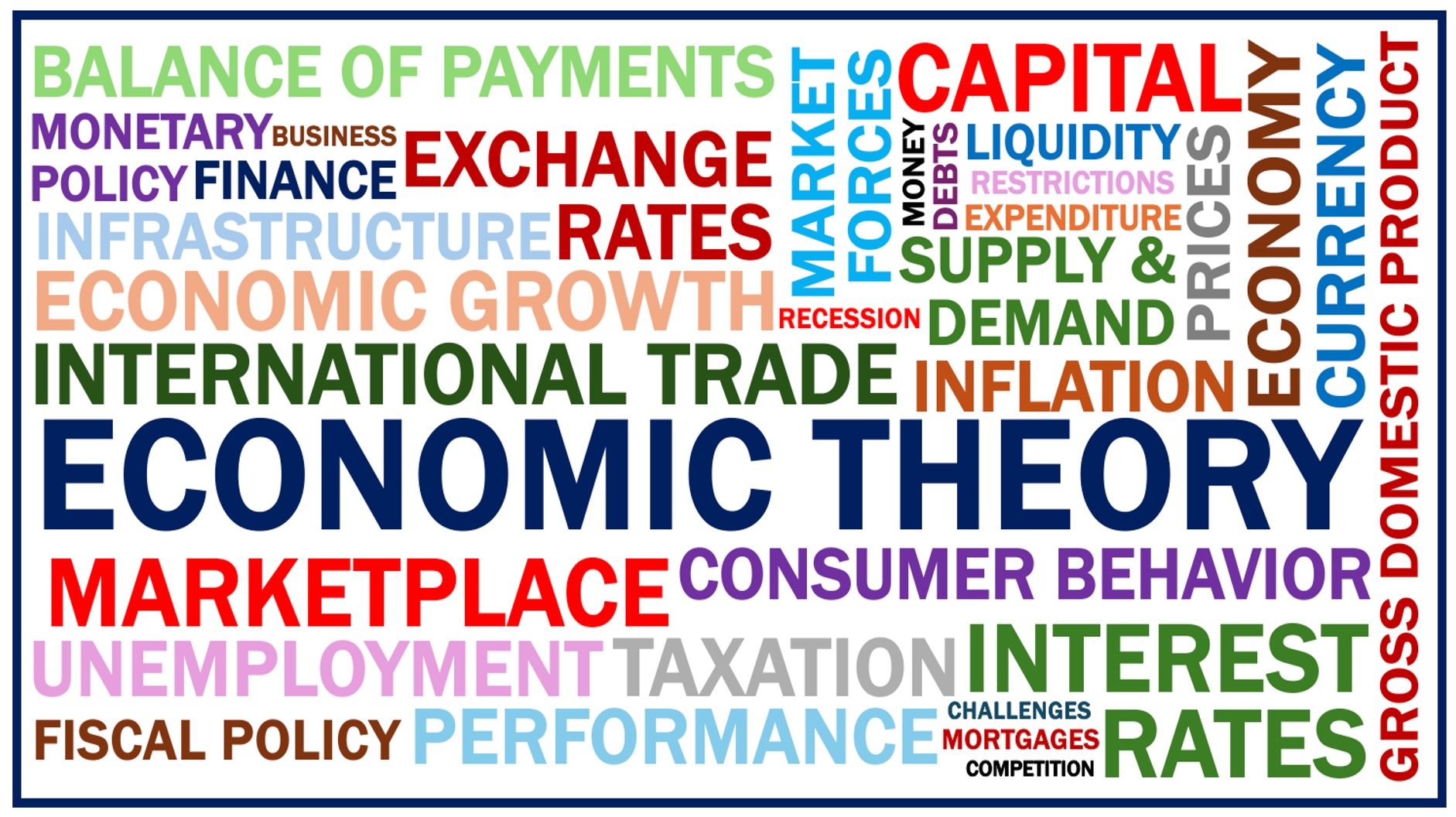Economic Theory is the study of relationships in the economy. The purpose of economic theory is to analyze and explain the behavior of various economic components. It tries to explain economic phenomena, why things happen, and what the best solutions are.
If you are interested in what influences or solves economic phenomena, you are interested in economic theory. It is the backbone of our understanding of how economies work.
Economic theory is a set of principles and models that help us understand the endless complexities of economic activities, from individual choices to global markets.
Wallstreetmojo.com has this definition of the term:
“Economic theory is a framework of concepts, principles, and models used to analyze and understand the functioning of economic systems. It is a systematic approach to studying how societies allocate resources to produce, distribute, and consume goods and services. It also aims to provide a coherent and logical explanation of economic phenomena.”
Market forces
The journey into economic theory often starts with the basic concept of market forces, that is, the concept of supply and demand.
This principle explains how the price and quantity of goods and services are determined in the marketplace. The concept of supply and demand is about understanding the balance between supply (what’s available) and what people want (demand).
When demand rises, prices tend to increase too if supply remains constant. If supply rises, prices tend to fall.
This interaction between supply and demand is foundational to economic analysis. It helps us explain the movements in markets.

Economic theory – how we make decisions
In this section, you will see the terms “microeconomic level” and “macroeconomic level.” The microeconomic level refers to the economic behaviors of individuals and businesses, while the macroeconomic level deals with the trends and policies affecting an entire economy.
- On a microeconomic level
Another key element is the study of how each one of us makes decisions. Economic theory assumes that we aim to maximize happiness or utility, given our limited resources.
This assumption leads to discussions on consumer behavior, savings, and investment choices, which are all crucial for personal financial planning and policy making.
- On a macroeconomic level
Economic theory, on a larger scale, looks at the role of governments in managing the economy as a whole. It discusses taxation, public spending, and monetary policies, which are tools that influence a nation’s economic health.
Studying these topics is essential for understanding inflation, unemployment, and economic growth.
Economic theory and international trade
Economic theory explores the dynamics of international trade, that is, trade between nations. It examines how countries benefit from exporting to and importing from one another.
It explains why some countries specialize in producing certain goods, and how this affects global economic relationships.
Famous figures in economic theory
Below, you can find information about five famous figures in the history of economic theory:
-
Adam Smith (1723-1790)
A Scotsman and the father of modern economics, Smith is renowned for “The Wealth of Nations,” which introduces the concept of the ‘invisible hand’ and champions free markets.
-
David Ricardo (1772-1823)
An English political economist known for developing theories of rent, wages, and profits. He articulated the principle of comparative advantage, advocating for free trade.
-
Karl Marx (1818-1883)
A German philosopher and economist, Marx critiqued capitalism in “Das Kapital” and co-authored “The Communist Manifesto,” predicting capitalism’s eventual downfall.
-
John Maynard Keynes (1883-1946)
This British economist revolutionized macroeconomics and government economic policies, advocating for government intervention to stabilize economic cycles.
-
Milton Friedman (1912-2006)
An American economist and leading proponent of monetarism, Friedman won the Nobel Memorial Prize in Economic Sciences for his advocacy of free-market capitalism.
Final thoughts
Economic theories guide businesspeople, policymakers, and individuals in making informed decisions. For example, theories related to economic growth can influence government policies on expenditure, education, and infrastructure, aiming to boost a country’s productivity and its citizens’ standard of living and well-being.
Economic theory is a vital field for understanding how economies operate. It provides us with the tools that help us make choices and decisions at microeconomic and macroeconomic levels.
